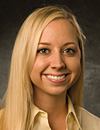Where Will Data Analytics Take Us Next?
/GUEST BLOGGER
Gerry Zack, ACFE Regent, CFE, CIA, CPA, CCEP
Zack, P.C.
Rockville, Md.
It seems like only yesterday that searching for dupes was considered to be sophisticated data mining! Oh, how the times have changed, and continue to change. Data analytics to detect fraud is an exciting field and one that is developing rapidly. (We even added an entire Data Analytics track at the upcoming 25th Annual ACFE Global Fraud Conference in San Antonio, Texas, June 15-20, 2014). According to a recent EY survey, 72 percent of executives surveyed believe big data can play a key role in fraud detection and prevention, but only 26 percent said their organization deploy forensic analytics, despite their interest in doing so. Those numbers show a big gap fraud fighters are hoping to close in the coming years. I am excited to have the opportunity to help close this gap by moderating a panel, “Where Will Data Analytics Take Us Next?” at the ACFE Global Fraud Conference.
In addition to fielding questions from the audience, I hope to explore several issues with our panel of experts, such as:
- What are some recent data analytic developments that are particularly useful to fraud detection that many of us might not be aware of?
- What are some of the most helpful software solutions currently in development that we can expect to see available in the near future?
- What future data analysis capability are you most interested to see a solution developed to address?
- Big data doesn’t necessarily mean good or useful data. With so much potential data to mine and analyze, where should an organization begin the process of deciding what and where to mine without getting lost in forest of big data?
- What are the most common mistakes that are made when an organization first embarks on a data analytics strategy?
- How does one best address the issue of data ownership in an organization, such as when one department or group closely guards information they have developed?
- How do data analytics needs and applications for fraud investigators differ from those of people who mine for signs of red flags on a regular basis?
These are just a few areas I’d like to see covered, but I’m sure you will have many other great questions to pose to our panel. This promises to be a fast-paced and exciting session that will be a great culmination to the conference, providing you with that one final opportunity for valuable take-aways. I also encourage you to stop by the conference's first-ever Data Analytics Showcase to meet with some of the industry's leading data analytics software providers.
I look forward to seeing you in San Antonio.








